I didn’t particularly want to write this article. I didn’t want to get involved in the whole online social media circus of opinion and rebuttal, triggering and offense. But I feel like I have something to say, and what I have to say is important. So I’ll speak my truth.
About a month ago, I completely removed my attention from the hysterical world of 24-hour news cycles, social media, the conspiracy theories, the craziness, the arguments and rebuttals, the fear, projection and lashing out. So I stopped watching the news and left Facebook, and very liberating it was too.
The collective process the world was going through as a result of Covid-19 (Coronavirus) was taking its toll on me. I had never experienced such fear and anger online before. People were literally lashing out, blurting their unprocessed emotions, fear and anger, all over social media, mirroring perhaps, conversations that were occurring in family homes all around the world.
Instead, I put my energy into the world around me: learning new skills, fishing, growing food, renovating a cottage. Putting my energy and vision into creating a new reality. But something is making me speak out at this time.
I would like to preface what I am saying by acknowledging that Covid-19 is a real threat that has caused great loss and suffering to many families all around the world.
The collective hysteria resulting from it, however, is every bit as damaging as the virus itself.
On the nature of fear
My background is as an outdoor guide. I spent two decades guiding in remote and sometimes dangerous rivers and mountains on four continents. During that time I became very familiar with the nature of fear. A large part of the psychological aspect of guiding in adventurous environments involves managing people’s fears.
One lesson I learnt beyond any doubt is that fear is contagious. Just like a virus. If one person in a group becomes fearful, it spreads like wildfire throughout the entire group, a legacy of our evolutionary heritage, and the fight or flight mechanism.
What we have witnessed, in the past few months, is the entire human species in fight, flight or freeze mode. It is collective anxiety on a global scale, amplified by social media and hysterical media coverage.
Our political leaders, for the most part doing their best and responding to an unprecedented situation, were pressured by a fearful media and hysterical public to do something, anything, and naturally they reacted from a place of fear.
As anyone with a background in adventure sports will know, good decisions are never, ever made from a place of great fear or hysteria.
The Indian philosopher Krishnamurti wrote: ‘Fear of any kind breeds illusion … where there is fear there is obviously no freedom … It makes one tell lies, it corrupts one in various ways, it makes the mind empty, shallow.’
I am not suggesting that our government in Ireland is consciously part of some nefarious plot to undermine democracy. Not intentionally anyway. But democracy has nevertheless been undermined as a result of the hysterical response to Covid-19.
In the UK, former Supreme Court Justice Jonathan Sumption said: ‘This is what a police state is like, it is a state in which a government can issue orders or express preferences with no legal authority and the police will enforce ministers’ wishes’. He has called the lockdown ‘the greatest interference with personal liberty in our history’. When great legal minds are telling us that the rule of law is being undermined, we should listen.
Our civil liberties and civil rights are not something that we be taken for granted. We forget now that Irish independence and the fight for freedom came at a high cost. ‘The price of liberty is eternal vigilance’, is a quote attributed to Thomas Jefferson.
It does not matter whether you consider yourself to be politically on the left, centre, or the right, the erosion of civil liberties that has occurred in most Western democracies over the last few months is something that should concern you. if the there is one thing the history of the last century has taught us, it is that tyranny can take many forms.
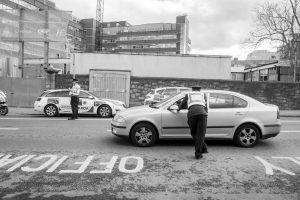
Image: Daniele Idini (c)
You may well have great trust in our current government. That is not the point. The point is that future governments may well use the same arguments to repress civil liberties. Consider the possibility of a less benign government with opposing political views to your own coming into power in the future, and using the precedents set at this time to undermine your civil liberties. We do not have to look far back in history to see that such events are very possible. Once a precedent is established, it is an easy path to follow.
Over two thousand years ago, Plato warned of the dangers of tyranny arising from a fearful and chaotic democracy. The people, when afraid, beg for a strong leader to come to save them. Tyranny can arise, not from a despot seizing power, but through a fearful public demanding protection from an external threat. This threat is real, but is overblown: ‘This and no other is the root from which a tyrant springs; when he first appears he is a protector.’
Many other great political thinkers have expounded on the idea of the tyranny of the masses. The great Irish political theorist Edmund Burke, wrote in a 1790 letter that ‘The tyranny of a multitude is a multiplied tyranny’.
John Stuart Mill in his famous essay ‘On Liberty’ (1859) spoke of the need to protect against, ‘the tyranny of the prevailing opinion and feeling … as the majority opinion may not be the correct opinion.’
We confront a dystopian nightmare of an Orwellian society of constant surveillance, with the government and/or corporations controlling what we can think, what we say, and how we act.
Militaristic language has become all too commonplace, thereby justifying extreme wartime measures. We talk of ‘front line’ workers. Much as these amazing doctors and nurses are doing a wonderful job and should be commended, there is no ‘front line’.
This is not a war. You cannot fight a war against a part of Nature. That is like fighting a war against yourself, a mass collective schizophrenia. This is part of the problem with our current rational-materialistic society: in our arrogance we believe ourselves to be somehow separate from Nature. This crisis is showing us clearly that we are not.
The following liberties have been undermined since the start of the Covid-19 hysteria:
- The right to personal liberty and to protest.
Article 40.4 of the Irish constitution guarantees a right to liberty, while Article 40.6.1 says you have a right to assemble and to associate freely.
The right to assemble and to protest is an essential part of any functioning democracy. Remember the mass civil unrest that was occurring in Hong Kong and France before Christmas? This has disappeared without a trace. Are we no longer allowed to march on the streets should the need to protest arise? What is now stopping future governments using the ‘health and safety’ of the public as an excuse to crack down on civil disobedience?
'You were very scarce around Gemma O'Doherty and John Waters' A protestor questions the consistency of Garda enforcement of emergency regulations as #SocialDistance protest by former workers of #Debenhams are moved on in Dublin today. #LockdownIreland @broadsheet_ie pic.twitter.com/o6juqQQfsX
— CassandraVoices (@VoicesCassandra) May 15, 2020
- The right to free speech.
One of the most important of our human rights, established as early as 1789 in Article XI of the French ‘Declaration of the Rights of Man’ – ‘The free communication of thoughts and of opinions is one of the most precious rights of man: any citizen thus may speak, write, print freely’. Article 40.6.1 of the Irish Constitution guarantees a right to express freely your convictions and opinions .
However, this right has come under attack in recent months, with censorship becoming very prevalent. Any questioning of the mainstream narrative quickly gets labelled ‘false news’ or a ‘conspiracy’ theory, thereby stifling debate and discussion. Who has the power to decide what is false news? Do you, or do I? Or does some unelected Youtube or Google content executive?
The mainstream media and social media companies have unprecedented power to manipulate the narrative. Social media and search engine algorithms can effectively control what we read and see, and therefore control the reality we live in. Who decides what we should think, and who holds this absolute and terrifying power?
I may not agree with what you are saying, but I absolutely respect your right to say it. Otherwise, one day, we may find that right has been taken from us.
- The right to privacy.
Article 8 of the European Convention on Human Rights states that ‘Everyone has the right to respect for his private and family life, his home and his correspondence.’
The seemingly benign concept of using a ‘contact tracing’ app could easily be misused by governments to normalise mass surveillance of citizens at all times, in the interests of public safety. Keeping track at all times of where you go and who you are with, a smartphone becomes like a voluntary ankle tag. With smartphones becoming almost essential to function in society, this mass surveillance is constant.
One of the very worst tendencies this crisis has brought out in people is of of neighbours spying on one another, settling old grievances by informing. Have people forgotten already how secret police, such as the Stasi in East Germany, controlled populations by encouraging this behaviour?
The French philosopher Michel Foucault believed that: ‘the power of a goverment is co-extensive with its ability to surveil’, and wrote about the symbolic prison of the Panopticon, in which prisoners never knew when they were being observed, so were obliged to be on their best behaviour at all times. We are living in a digital panopticon, and giving governments unprecedented powers of surveillence.
Inside one of the prison buildings at Presidio Modelo, Isla de la Juventud, Cuba.
Moreover, with cash becoming redundant through this crisis, governments and corporations have acquired an even greater capacity to surveil, and therefore control, our lives. In the U.K., Derbyshire police used drones to film hillwalkers in a remote mountain area, while in California police fined surfers a $1000 for catching waves.
Is this the kind of society you want to live in?
Despite posts yesterday highlighting issues of people still visiting the #PeakDistrict despite government guidance, the message is still not getting through. @DerPolDroneUnit have been out at beauty spots across the county, and this footage was captured at #CurbarEdge last night. pic.twitter.com/soxWvMl0ls
— Derbyshire Police (@DerbysPolice) March 26, 2020
- The right to bodily autonomy and personal sovereignty.
Are we going to give away our right to bodily autonomy to pharmaceutical companies, and the possibility of a mandatory vaccination programme?
I am neither pro- nor anti- vaccination, but I believe that people should enjoy an absolute right to decide what is put into their bodies, freedom over their own body. A right to bodily integrity has been recognised by the courts as an unenumerated right, protected by the general guarantee of ‘personal rights’ contained under Article 40 of the Irish constitution.
There is some disagreement in the scientific community around the safety of vaccines, with billions of dollars having been paid out in compensation by the Vaccine Injury Courts over the past thirty years, but any dissent of the mainstream Big Pharma narrative is brutally suppressed and attacked. In the Middle Ages, heretics were burnt at the stake for daring to question the mainstream version of reality. While they are not burnt at the stake today, anyone who questions the mainstream narrative is attacked, vilified, and discredited
If anyone thinks these concerns over civil liberties far-fetched, I suggest you look at the situation in China at the moment, where the government has used the crisis to strengthen its grip on power, and to crack down on dissent.

Dmytro Sidashev / Alamy Stock Photo
What sort of world do we want to live in post-Covid-19?
I would easily sacrifice an element of safety for my freedom. I want to live in a world where personal liberty and civil duties are both honoured and respected; where personal sovereignty is not given away to unelected global corporations; where political power remains vested in individuals and communities, and a central State does not have unchecked power to interfere in citizens’ lives. Where policing is by consent, and not by coercion and control. I want young children to be able to run freely in the outdoors without fear, or masks.
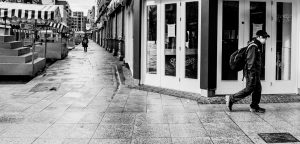
Image: Daniele Idini (c)
I do not want to die anytime soon, but if I do, so be it. I have long accepted that one day I will die. I would much rather die a free man from Covid-19 than live in a dystopian surveillance society. What we are seeing is a global collective psychological process, the unconscious and unprocessed fear of death. By facing and accepting our own mortality, this fear dissipates.
I do not want to live in a sanitised, risk-free, nanny-state surveillance world, where the government knows where I am at all times and controls what I think, what I can say, what I put in my body. I do not consent to this version of reality. I will not be part of it.
The real front line is about personal power and self-sovereignty. Reclaiming our power from the unelected Silicon Valley AI/tech, media and pharmaceutical executives, who have acquired greater power over every aspect of our lives, with hardly any oversight.
We need to come terms with the immense power that is accumulating in Google and Facebook to influence, manipulate and control what people think. Even that most Machiavellian of realpolitik bureaucrats Henry Kissinger recently wrote: ‘The Age of Reason originated the thoughts and actions that shaped the contemporary world order. But that order is now in upheaval amid a new, even more sweeping technological revolution whose consequences we have failed to fully reckon with, and whose culmination may be a world relying on machines powered by data and algorithms and ungoverned by ethical or philosophical norms’. He who controls the algorithms controls the world.
This is not a world I want to create. I do not consent. For sure this crisis has brought out the very best in humanity, with neighbours helping one another, communities coming together, increasing food security and developing a great sense of solidarity. But we cannot, Pollyanna-like, ignore the potential for the slide into a dystopian surveillance society.
What sort of society do we want our children and grandchildren to inhabit? This is the real front line. We have had a great opportunity for reflection and collective dreaming, for visioning and birthing a new society and new reality. The birthing process of the new world will be messy and painful, as births always are, but the baby will be born.
We are not powerless. We have the power to rewrite the story and create a beautiful world for future generations. Let us make our collective vision a beautiful one.
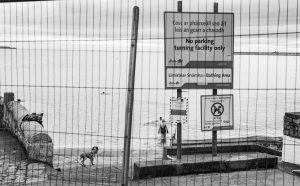
Image: Daniele Idini (c)

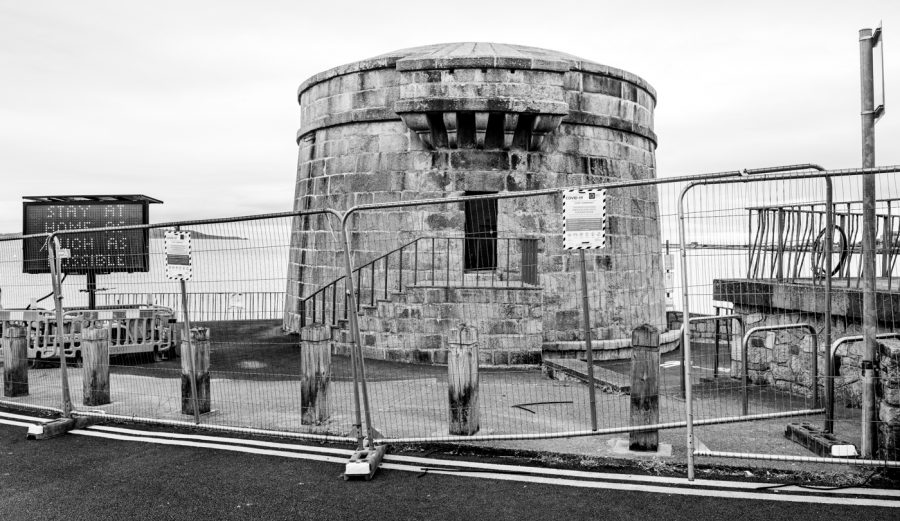
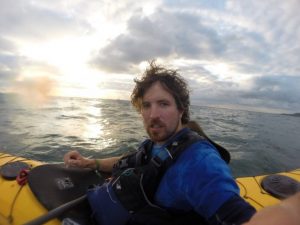
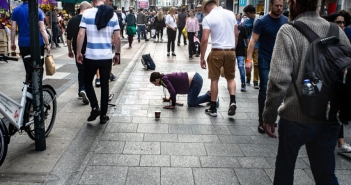
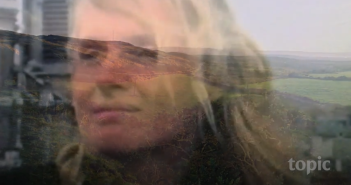
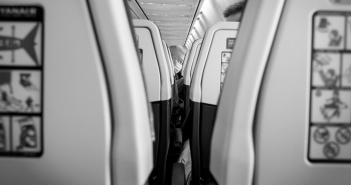
1 Comment
You’ve thought long and hard about all this and even wrote it all down but you are neither ‘pro or anti-vaccination’. You might want to have a good long, hard think about that one again.